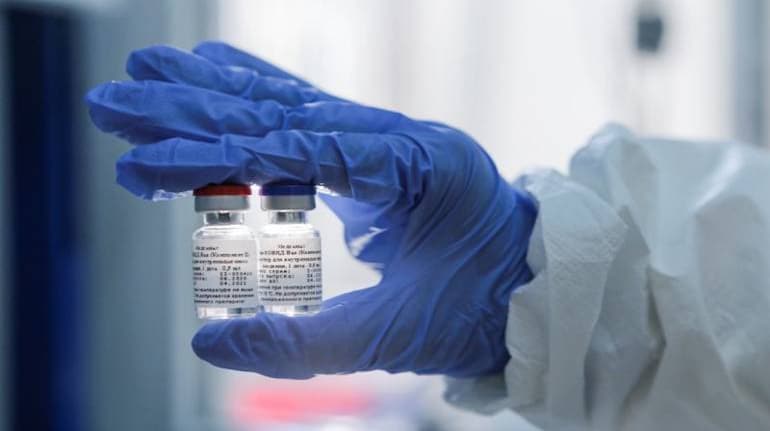



Instead of dissing Sputnik V, the COVID-19 vaccine developed by the Moscow-based Gamaleya Research Institute, we should actually be praying for its success. As indeed we must for all the 40-odd vaccine candidates currently in Phase 1-3 trials, as well as others that are still in pre-clinical stages of development and research. The reason is simple: there is no guarantee that any of them will eventually be successful.
In the pharma industry, the gap between trials and eventual products is huge and there is a tragic history of drugs that have had to be culled just short of being put out in the market. Roughly nine in 10 drugs and biologics that are tested in humans don’t even reach the US Food and Drug Administration (FDA) for its approval even after Phase 3 testing. This after companies go through extensive multi-centre, double-blind trials across the world to evaluate their efficacy and safety.
In a 2017 study, the FDA (https://www.fda.gov/media/102332/download) looked at 22 case studies of drugs, vaccines and medical devices over the previous 18 years in which promising Phase 2 clinical trial results were not confirmed in Phase 3 clinical testing. It found that the Phase 3 studies did not confirm Phase 2 findings of effectiveness in 14 cases, safety in one case, and both safety and effectiveness in seven cases. In two cases, the Phase 3 studies showed that the experimental product increased the frequency of the problem it was intended to prevent.
These were drugs from large pharma companies such as Roche, Bristol-Myers Squibb, Sanofi and addressed such pressing problems as reducing the symptoms of schizophrenia, hepatocellular cancer and breast cancer.
The heartbreak from such rejections is more acute for patients than for the companies involved. Just this week, Catalyst Pharmaceuticals’ Phase 3 clinical trial of Firdapse failed. The drug would have brought relief to patients suffering from myasthenia gravis, a rare, debilitating, autoimmune disease.
The very process of going through the trials is onerous, expensive and even at the end of it there is no certainty that a product can be launched soon enough. Thus, in July, California-based startup Equillium announced that in a clinical trial conducted in India by its partner Biocon Ltd. its product Itolizumab significantly reduced mortality in trials on patients hospitalised with COVID-19. Despite the encouraging news, the journey ahead for Itolizumab is long and complex. The company has now sought a meeting with the FDA to review its proposal to initiate a global randomised controlled clinical trial to study the effects of Itolizumab in hospitalised patients.
Indeed, ever since the first ever randomised controlled trial of a drug, Streptomycin, for pulmonary tuberculosis in 1946, clinical trials have faced a wide variety of challenges ranging from scientific to ethical.
There are, of course, good reasons for the insistence on these. In 1937, more than 105 people died in 15 states across the US following the consumption of Sulfanilamide, an antibacterial to cure streptococcal infections. While the earlier drug in capsule form was safe enough, one of its manufacturers, S.E. Massengill Company of Bristol, Tennessee, decided to boost its sales by launching a liquid suspension for oral consumption. By September 1937, after the company’s internal control lab had approved the product, Massengill had distributed 240 gallons of the liquid, called Elixir Sulfanilamide, across the country. Then the deaths started with the first six patients succumbing to renal failure. Tests were ordered and diethylene glycol, an anti-freezing agent, was identified as the toxic substance. Before it was taken off the market, over a 100 people died, a disaster that provoked a public backlash and led to the passage of the 1938 Food, Drug, and Cosmetics Act, which gave the FDA power to monitor the safety of new drugs.
There is good reason for experts to be cautious about the Russian vaccine which has still not cleared Phase 3 trials. History serves a cruel reminder of vaccines gone wrong, none more so than the swine flu vaccine administered to thousands of Americans in 1976. Eventually it was found that there was no need for it. However, by then it had led to horrible side effects, including 450 cases of the degenerative nerve disease Guillain-Barre.
The problem is scepticism at an early stage doesn’t help a vaccine since there is no certainty of what may or may not work. The best we can do is keep our faith and our guard up.
(Sundeep Khanna is a senior journalist. Views are personal.)
Discover the latest Business News, Sensex, and Nifty updates. Obtain Personal Finance insights, tax queries, and expert opinions on Moneycontrol or download the Moneycontrol App to stay updated!
Find the best of Al News in one place, specially curated for you every weekend.
Stay on top of the latest tech trends and biggest startup news.